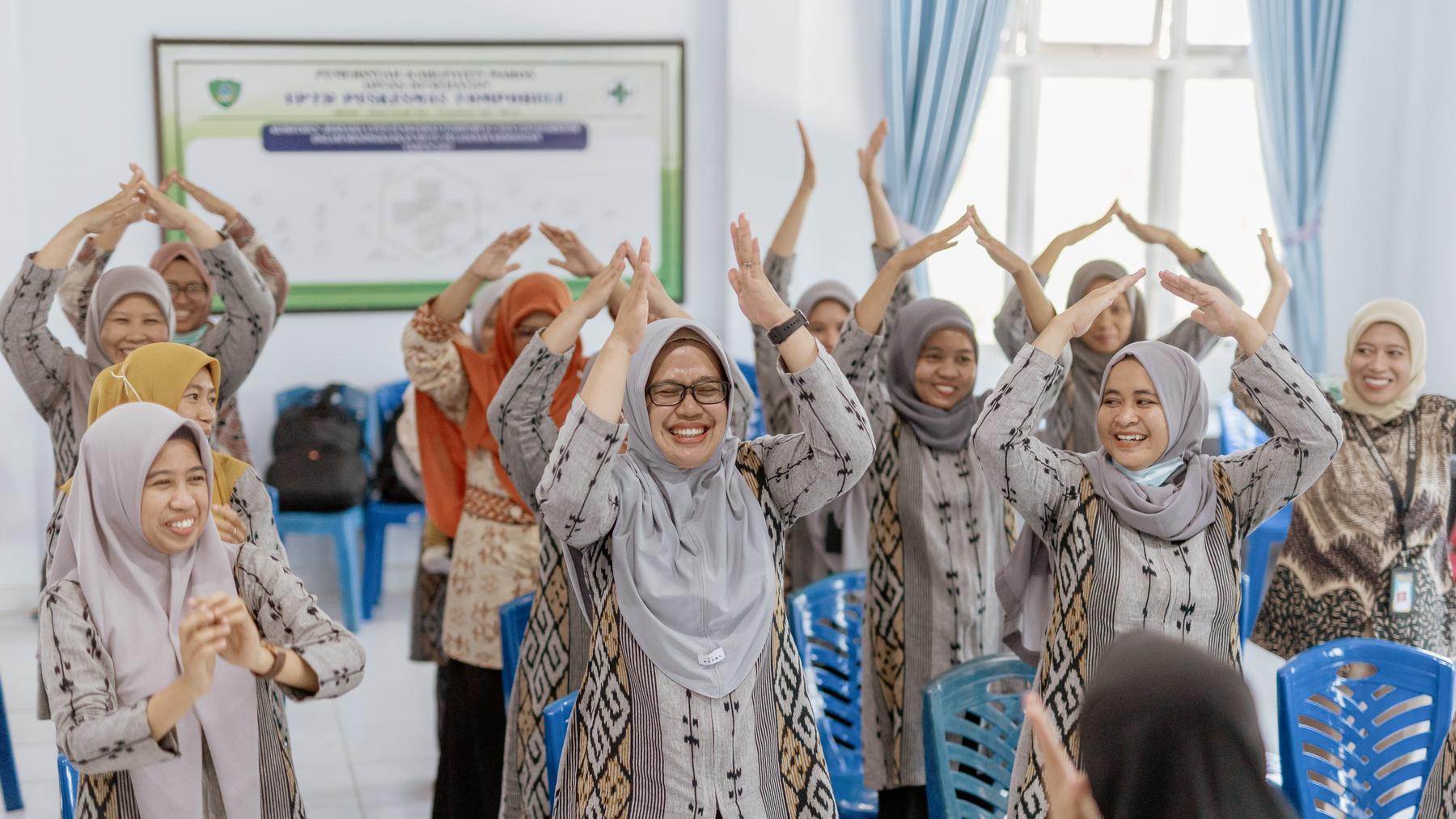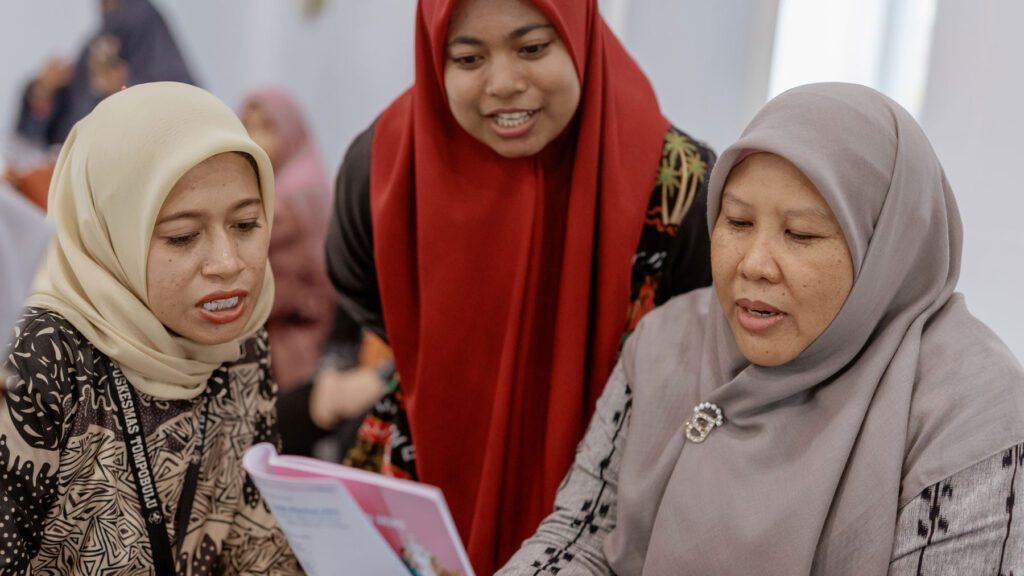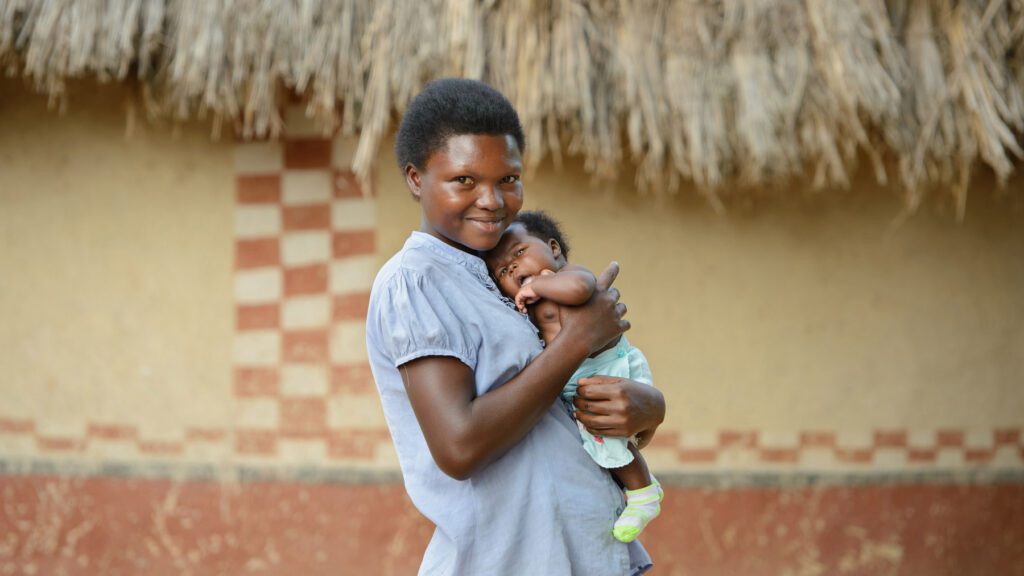Scientific Approaches to Address the Practical Challenges of Implementing Nutrition Solutions
By Shannon King, PhD, MSPH, Technical Advisor for the Transforming Lives through Nutrition Project at Vitamin Angels

Growing Momentum for Global Nutrition Solutions
There is an increasing amount of data showing that women and children are suffering the worst consequences of the global nutrition crisis, with long-lasting and intergenerational impacts. As a result, many leaders in countries hit hardest by malnutrition are eagerly looking for effective, safe, and affordable nutrition interventions. The easy part is committing to the idea of improving the health of mothers and babies. The hard part comes when figuring out “how?” – how do we effectively implement a program on a large scale? How do we turn a desire to help into real impact?
Start with Science
Implementation science (IS) allows us to study how to successfully integrate an evidence-based practice into an existing health system, like providing multiple micronutrient supplements (MMS) to pregnant women through routine maternal and newborn health care. With an intervention like MMS, which is supported by more than 20 years of evidence, the World Health Organization (WHO) recommends that countries adopt and scale up MMS during pregnancy within the context of rigorous research, including implementation research (IR) that examines the acceptability, feasibility, sustainability, equity, and cost-effectiveness of implementation.
How do we go about ensuring that these interventions will be implemented effectively? IS provides a rigorous method to help ensure that effective nutrition interventions are delivered with impact in real world contexts. IS provides the tools needed to understand the context, catalyze policy change, and build strategies to help ensure that as many mothers and babies as possible receive the interventions. Using implementation science to deliver nutrition interventions has been gaining momentum in the past decade. This type of scientific inquiry has led to advancing the successful delivery of interventions in other areas of public health, such as HIV treatment and prevention.
If you’re interested in learning more about IS for nutrition interventions: what it is, why we use it, and resources for those interested in this approach, learn more by reading this resource paper.
Putting IS into Action for Greater Impact in Indonesia, Mali, and Uganda
- In Indonesia and many other countries, there are already delivery strategies around maternal nutrition interventions like iron-folic acid supplementation (IFA). IS helps us understand which elements of the existing system are working–or not–to identify barriers that might also hinder a transition to a new intervention like MMS, as well as ways to strengthen the policies and health systems necessary for the transition.

Health workers review MMS training materials in Indonesia
Using an implementation science framework, government, researchers, and NGOs are working together to design and test strategies to ensure effective delivery of MMS in Indonesia. By testing several different delivery strategies, we can identify which approaches result in the most successful uptake and adherence by pregnant women. This process also provides an avenue to collect data on and improve the acceptability, feasibility, and quality of delivering MMS within the existing Indonesian antenatal care (ANC) services. These efforts were supported by the Indonesian Ministry of Health, the University of Indonesia, Johns Hopkins Bloomberg School of Public Health, Kirk Humanitarian, and Vitamin Angels in collaboration with many local partners.
- In Mali, Jhpiego, the Center for Vaccine Development, and the Johns Hopkins Bloomberg School of Public Health worked with pregnant women to co-design MMS packaging and a counseling strategy. Then, they examined how these tools affected MMS acceptability and adherence among pregnant women and health care providers. The insights gained from this study, including what perceived benefits and challenges taking MMS are, inform the feasibility and effectiveness of MMS implementation strategies in Mali and globally. These efforts were implemented by the Antenatal/Postnatal Care Research Collective with support for provision of product through Kirk Humanitarian and Vitamin Angels.
- The Initiative to Advance Implementation Science in Nutrition, a collaboration between Vitamin Angels and the Center for Human Nutrition at the Johns Hopkins Bloomberg School of Public Health, is conducting implementation research in Uganda in partnership with the Ministry of Health, UNICEF, and the Child and Family Foundation Uganda (CFU) to identify the key challenges and opportunities for delivering and ensuring uptake of MMS. By bringing together pregnant women and ANC providers across eight districts, implementation strategies are being designed to integrate MMS programming into the existing system and to help ensure that MMS can have the intended impact of improving maternal and birth outcomes.

A mother holding her young infant in Uganda. Photo by Jjumba Martin, 2016
After Plans Launch, the Hard Work Begins
The hard work of implementation science ensures that programs designed to improve maternal and child nutrition are implemented in the most informed and effective way possible to achieve the desired impact. Vitamin Angels has provided technical expertise to many of these efforts and supported the development of additional tools, like the FAQ for decision-makers, to provide an organized, multi-stakeholder approach to implementing and scaling up MMS.
Women and children deserve the best possible public health strategies for improving their health and nutrition. Implementation science provides an avenue to ensure that evidence-based nutrition programming is effectively delivered at scale. We invite the global maternal health and nutrition community, donors, and country governments to join us in our efforts to guide global scale-up and increase the potential for impact using implementation science.
